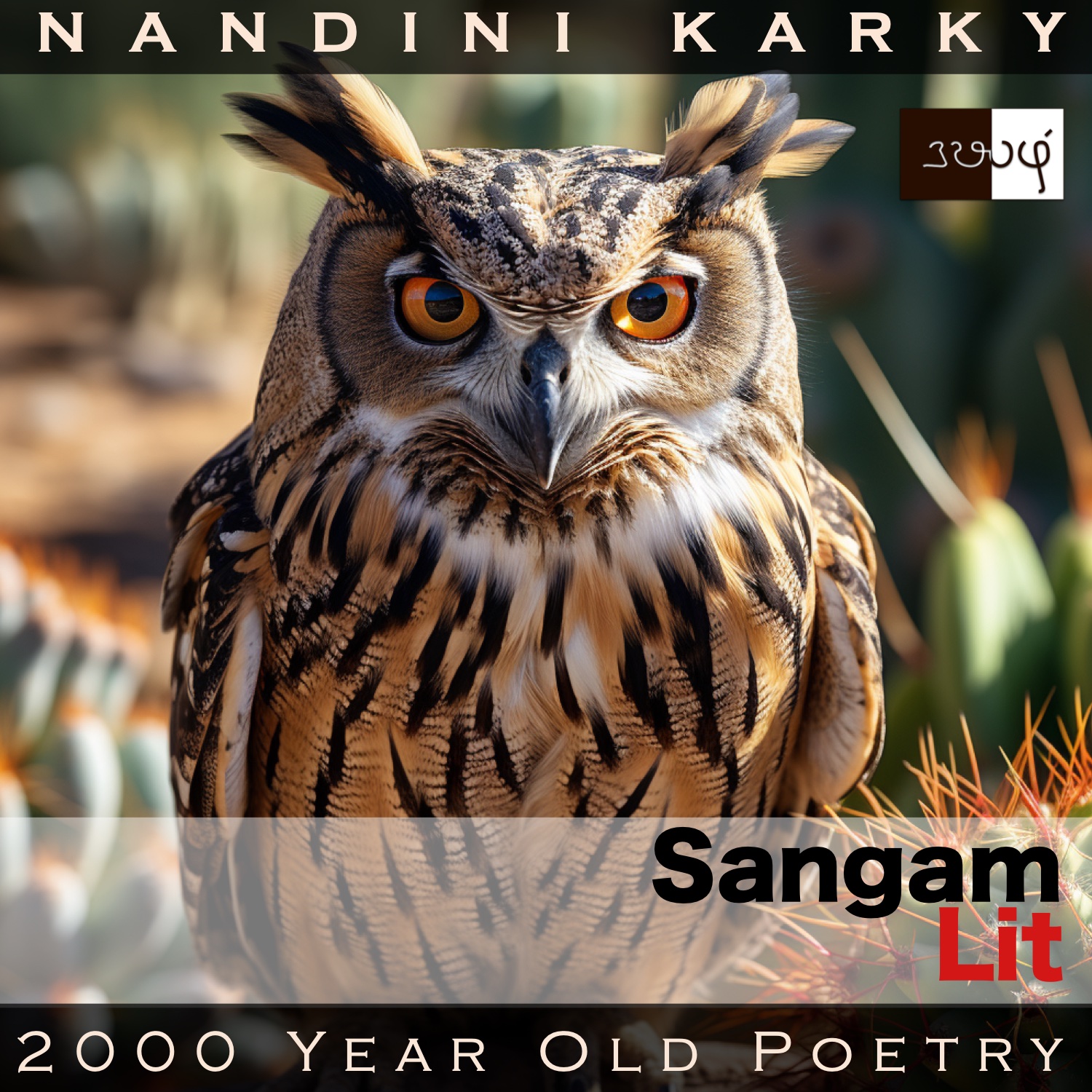Podcast: Play in new window | Download
Subscribe: Apple Podcasts | Spotify | Amazon Music | Android | iHeartRadio | TuneIn | RSS | More
In this episode, we perceive the helplessness of supplicants, as portrayed in Sangam Literary work, Puranaanooru 240, penned about the Velir King Aay Andiran by the poet Kuttuvan Keeranaar. Set in the category of ‘Pothuviyal Thinai’ or ‘Common Themes’, the verse details the before and after of a king’s death.

ஆடு நடைப் புரவியும், களிறும், தேரும்,
வாடா யாணர் நாடும் ஊரும்,
பாடுநர்க்கு அருகா ஆஅய் அண்டிரன்
கோடு ஏந்து அல்குல், குறுந் தொடி மகளிரொடு,
காலன் என்னும் கண்ணிலி உய்ப்ப,
மேலோர் உலகம் எய்தினன் எனாஅ,
பொத்த அறையுள் போழ் வாய்க் கூகை,
‘சுட்டுக் குவி’ எனச் செத்தோர்ப் பயிரும்
கள்ளி அம் பறந்தலை ஒரு சிறை அல்கி,
ஒள் எரி நைப்ப உடம்பு மாய்ந்தது;
புல்லென் கண்ணர் புரவலர்க் காணாது,
கல்லென் சுற்றமொடு கையழிந்து, புலவர்
வாடிய பசியராகி, பிறர்
நாடு படு செலவினர் ஆயினர் இனியே.
Obituaries continue, and in this verse, we learn about the death of a renowned patron – Aay Andiran. The poet’s words can be translated as follows:
“The one who rendered horses with a rhythmic gait, elephants, chariots, countries and towns with unending prosperity to singers – The great Aay Andiran, along with his royal maiden, wearing small bangles and having uplifted loins, pulled by Death, the one who lacks eyes, has departed to the higher world. And so, a huge-mouthed owl from the hollow of a tree, shouts ‘burn and heap’ and calls out to those, who are dead in the wide spaces filled with cactus. Here, on one side, as a blazing fire devours, his body perished. Dull-eyed supplicants, not seeing their patron, are now left helpless with their loud relatives. Poets, with hunger soaring, are left with no choice but to leave to distant countries ruled by others now.”
Time to explore the nuances. The poet details about how the king used to render not only small gifts of precious things but horses, elephants, chariots and fertile towns and countries to those who came seeking to him. But now, Death lacking vision has taken away the life of this king and his royal maiden, the poet adds. Why the royal maiden too? Could this be a reference to the ancient practice of ‘Sati’, where the woman climbed her husband’s pyre? And with that possible reference, we know that all is not perfect in the past and some practices that made sense to them are to be shunned in the modern world.
Returning, the poet then brings forth the imagery of an owl in the hollow of a tree, calling out aloud, which seems to sound in his ears, like a command to burn and pile the bodies in that drylands region filled with cactus plants. It’s here, the king’s form dies out, devoured by flames, the poet describes. He then talks about the state of supplicants who had come hoping to the king. They are standing with eyes filled with despair, wondering how to support their relatives. All the hungry poets can do now is to go to distant countries in search of others who would support them, this poet concludes. A verse that registers the shock and trauma of death and how it affects all those around!




Share your thoughts...